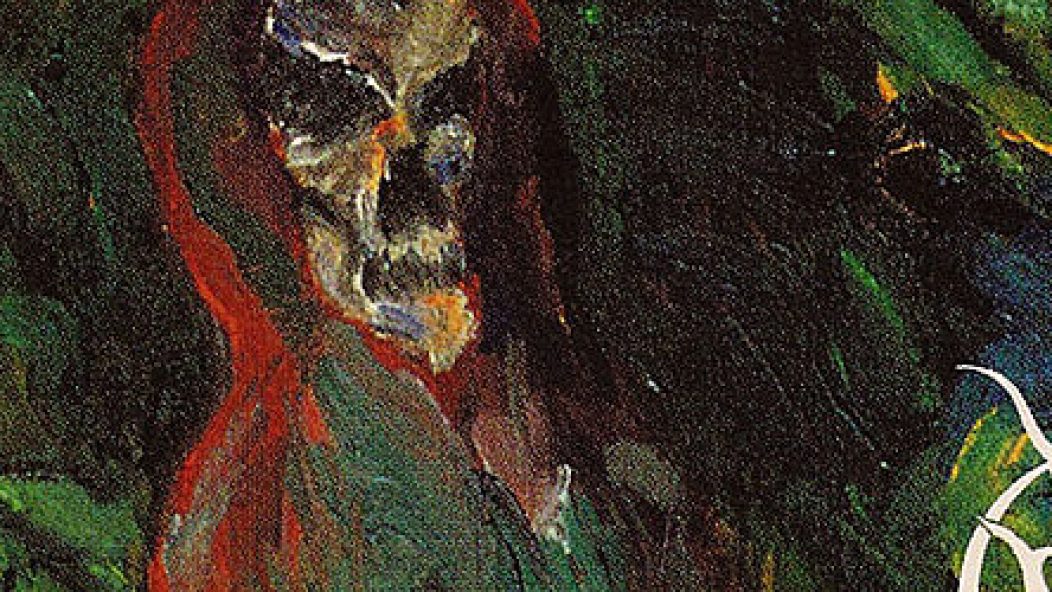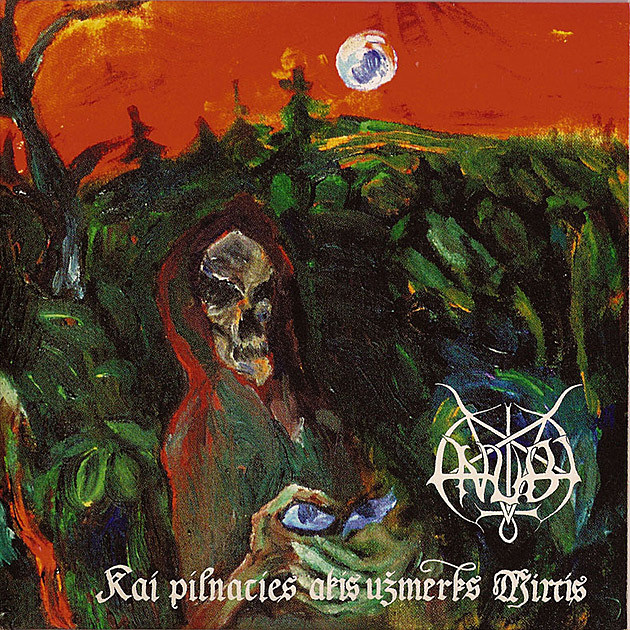
Forgotten Gems: Anubi - Kai Pilnaties Akis Užmerks Mirtis
. . .
If you asked me about the country of Lithuania a few months ago, I would not have been able to tell you much more than its location in northeastern Europe. I still do not know much about this Baltic nation except that it was home to the mysterious kvlt band Anubi. Formed in 1992 by vocalist/painter Lord Ominous (Martynas Meskauskas) and multi-instrumentalist Thoth (Laurynas Jukonis), Anubi released three demos and one EP before their full length masterpiece, 1997’s Kai Pilnaties Akis Užmerks Mirtis (the best translation I can get is “When Death Shalt Close the Eyes of the Full Moon”).
Named after the Egyptian mummification god (note the upside down ankh in the logo), Anubi are often labeled folk or black metal, but I feel Anubi’s music unifies multiple influences and defies categorization. Although the term “outsider music” can be problematic, Anubi fit this definition in several ways. First, because they are from a location not usually known for metal, and second, because they play an avant-garde style of music that would confuse, frustrate, or even anger more traditional metalheads. Kai Pilnaties Akis Užmerks Mirtis is a rare album that exhibits genre conventions, but is paradoxically free from these contexts; it is completely unique and could not have been made by anyone, anywhere else.
Anubi’s earlier recordings exhibit many lo-fi black metal signifiers: hazy recording quality, psychedelic delay pedal, and looser performance style. Stylistically speaking, the music does not have the typical buzzsaw guitars, blast beats, or demonic rasp, but contains thicker, chugging riffs, plodding drumming, and operatic singing. After 5 years of recording demos and shifting lineups, Anubi distilled their sound into Kai Pilnaties Akis Užmerks Mirtis. The recording quality is much clearer, but the album does not lose its psychedelic edge with the use of echo effects, ambient passages, and more “free” instrumental performances. Anubi recruited many session musicians who play unusual instruments such as saxophone, accordion, and piano. In addition to the heavier songs and several minor key ballads, there also are more developed black metal influences with faster riffing and raspy/operatic trade off vocals. Lord Ominous’ vocals improved since the first demo and reflect the importance of vocal music in traditional Lithuanian culture.
Kai Pilnaties Akis Užmerks Mirtis beings with the ambient track “Savo Kelyje”, whose warped organ, free jazz saxophone, and layers of chants and echoes juxtapose afolk culture with impending modernity. Next follows the title track, which begins with a seemingly standard groove metal riff that is soon complemented by non-sequitur atonal piano runs. The chorus is a bit slower and features more traditional black metal vocals followed by sections of staccato riffing. The song closes in a hypnotic state with funk style slap bass leading the free drumming and repetitive guitar riffs. The fifth track “Gyvenimo Kritimà Dovanosim Krankliui” has a great opening scream followed by a catchy, clean guitar melody and slide guitar lead that is atypical for black metal and would sound more at home in an darker version of the Allman Brothers Band.
I cannot recommend Kai Pilnaties Akis Užmerks Mirtis enough for fans of odd black or folk metal. But I would also recommend the album for people who enjoy any type of strange music that transcends genre. Anubi disbanded after Lord Ominous’ untimely death in 2002 during a boating accident on Lake Michigan. The corpse-painted vocalist was viewed as a figurehead of the Lithuanian scene, and it is a tragedy that he did not live to create more beautiful and challenging music.
. . .
HEAR KAI PILNATIES AKIS UZMERKS MIRTIS
. . .
Anubi – “Savo Kelyje”
. . .
Anubi – “Kai Pilnaties Akis Uzmerks Mirtis”
. . .
Anubi – “Gyvenimo Kritimà Dovanosim Krankliui”
. . .











